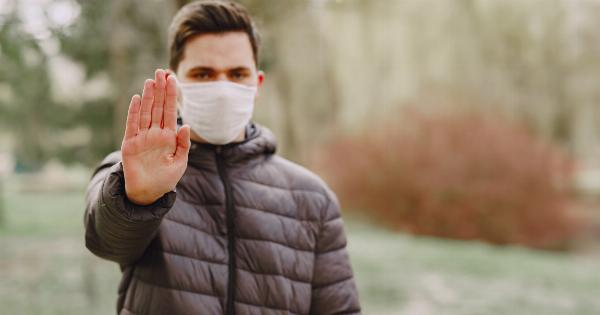Meningitis B, a potentially life-threatening bacterial infection that affects the brain and spinal cord, has once again made headlines with the report of two new cases in November.
Meningitis B is one of the most aggressive forms of meningitis and can cause severe complications and even death if not treated promptly.
The Two New Cases
Health authorities have recently confirmed two new cases of Meningitis B, bringing the total number of reported cases this year to 15.
Both individuals affected by this deadly infection are currently receiving medical treatment, and efforts are underway to trace and test anyone who may have come into contact with them.
The first case involves a 23-year-old college student who exhibited flu-like symptoms before being rushed to the hospital. The young patient is currently in stable condition but remains under intensive care due to the severity of the infection.
The second case involves a 9-year-old child who initially presented symptoms that were mistaken for a common cold. Unfortunately, the child’s condition rapidly deteriorated, leading to an urgent hospital admission.
Meningitis B: A Dangerous Threat
Meningitis B is caused by the Neisseria meningitidis bacterium, and its symptoms often resemble those of the flu, making it challenging to diagnose in its early stages. However, unlike the flu, meningitis can quickly turn fatal.
The bacteria are highly contagious and can spread through respiratory droplets, such as coughing and sneezing, as well as direct contact with an infected individual.
Common symptoms of Meningitis B include:.
- High fever
- Severe headache
- Stiff neck
- Nausea and vomiting
- Sensitivity to light
- Confusion or altered mental status
- Seizures
If left untreated, Meningitis B can lead to serious complications, such as hearing loss, kidney failure, and even death.
Prompt diagnosis and treatment are crucial to increase the chances of a full recovery and minimize the risk of severe long-term consequences.
Prevention and Vaccine
Preventing the spread of Meningitis B is essential to protect individuals and communities from this highly contagious infection.
Good hygiene practices, such as covering the mouth and nose while coughing or sneezing, frequent handwashing, and avoiding close contact with infected individuals, can help reduce the risk of transmission.
Additionally, vaccination plays a crucial role in preventing Meningitis B infections. The Meningococcal B vaccine, also known as MenB, is highly effective in providing immunity against this strain of the bacteria.
It is recommended for individuals at increased risk, including infants, college students, and those living in close quarters such as dormitories or military barracks.
It is important to note that vaccination does not guarantee full immunity, but it significantly reduces the chances of contracting the infection.
Therefore, it is vital to combine vaccination with good hygiene practices and prompt medical attention if any symptoms of Meningitis B are observed.
Responding to the Outbreak
Health authorities are taking immediate action in response to the recent outbreak of Meningitis B. Contact tracing is being carried out to identify and test individuals who may have been exposed to the bacteria.
Close contacts, such as family members, roommates, and healthcare workers, are being closely monitored for any signs of infection.
Furthermore, public awareness campaigns are being initiated to educate the general population about the symptoms of Meningitis B and the importance of vaccination.
It is crucial for individuals to be vigilant and seek medical attention if they or someone they know develop any suspicious symptoms.
Maintaining Vigilance
Meningitis B is a serious and potentially deadly illness that requires immediate medical attention.
As new cases emerge, it is essential for both healthcare professionals and the general population to maintain vigilance and take proactive measures to prevent the spread of this infection.
By staying informed about Meningitis B, its symptoms, prevention strategies, and the availability of vaccines, we can collectively combat this dangerous threat and protect ourselves and our communities.






























